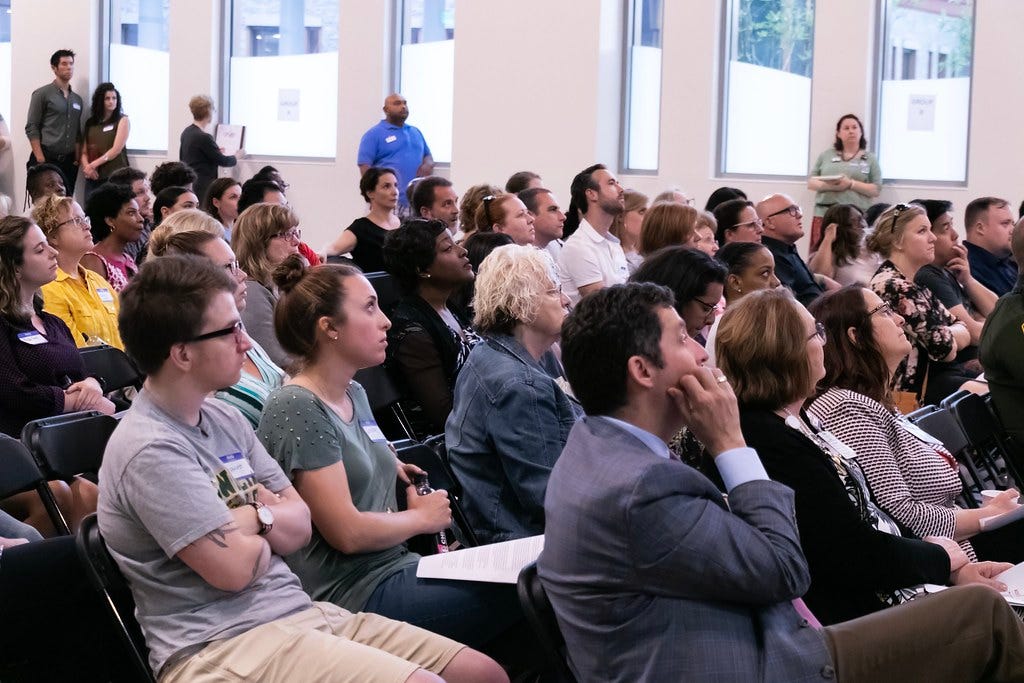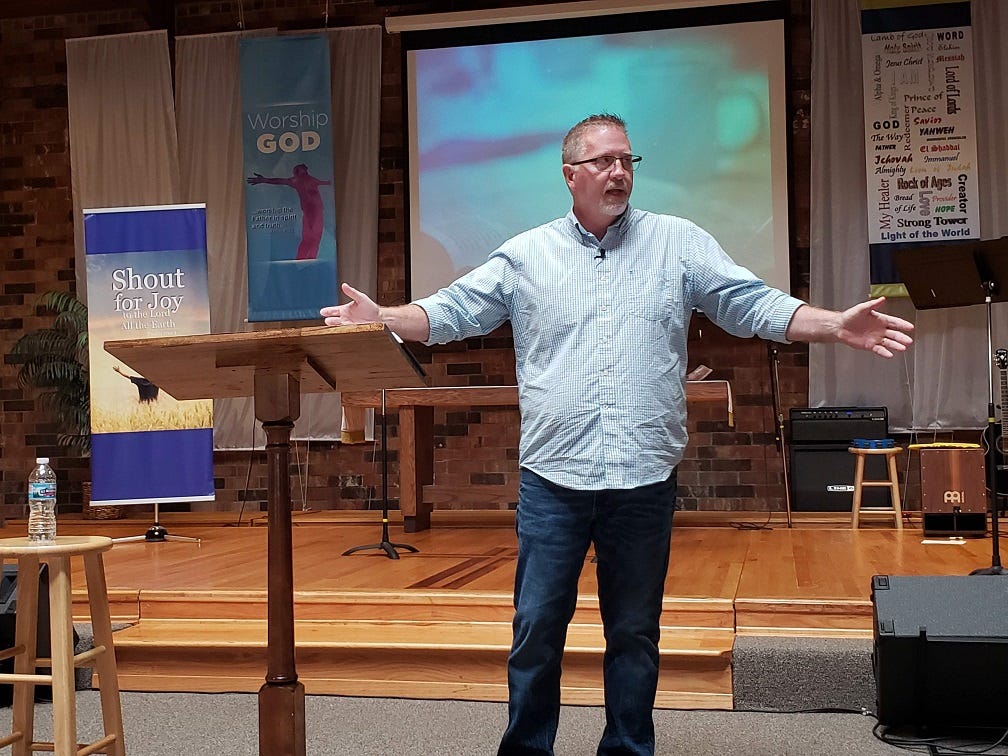There's a song that's been on repeat in my heart lately, and it's called "Sad Sunday" by the Livestock Band. It’s a powerful, raw reflection on feelings of isolation and misunderstanding, and as I’ve sat with its lyrics, I’ve felt a deep resonance with a struggle that’s often present within the Christian faith: the walls we build between ourselves and other believers, simply because we don't "see things" or "sing the same songs" as they do.
As Christians, we share a foundational truth: Jesus Christ is our Lord and Savior. This is the bedrock of our faith, the unifying principle that should be paramount. However, the reality on the ground often looks a little different. We gather in churches, each with our unique traditions, theological nuances, and worship styles. And while these differences can bring richness and diversity, they can also, sadly, become barriers. We can find ourselves retreating into our denominational enclaves, viewing those who worship or believe slightly differently with suspicion, or even outright judgment.
"Sad Sunday" captures this feeling of alienation perfectly. The song paints a picture of someone feeling alone, perhaps even disconnected from their own community. It’s a feeling I’ve experienced, and I suspect many of you reading this have too. It's not just about the music we sing; it's about the deeper currents of understanding and acceptance that can sometimes be missing, even within the body of Christ.
The "Sad Sunday" Syndrome: When Denominations Become Divisions
Think about it. We have Presbyterians, Baptists, Methodists, Pentecostals, Catholics, Lutherans, and so many more. Each denomination has a history, theological distinctives, and often, a specific way of approaching worship. These can be beautiful expressions of faith, honed over centuries or born out of passionate conviction. But when does a healthy distinction become an unhealthy division?
I believe the "Sad Sunday" syndrome kicks in when our denominational identity starts to overshadow our Christian identity. When the creed of our specific church feels more important than the creed we all share: "I believe in God the Father Almighty, Maker of heaven and earth. And in Jesus Christ, his only Son, our Lord."
We can get so caught up in the minutiae of how a particular doctrine is interpreted, or the precise order of service, that we forget the spirit of unity that Jesus himself prayed for. In John 17, as Jesus is praying for his disciples, he says, “My prayer is not that you take them out of the world but that you protect them from the evil one. They are not of the world, even as I am not of it… My prayer is not for them alone. I pray also for those who will believe in me through their message, that all of them may be one, Father, just as you are in me and I am in you. May they also be in us so that the world may believe that you have sent me.” (John 17:15-16, 20-21).
The emphasis is on oneness. Jesus earnestly desires a unity that testifies to the world about His divine mission. When we allow denominational walls to become insurmountable barriers, we are, in a way, hindering that prayer from being fully realized.
The Temptation of "The Right Way"
One of the most insidious ways these walls are built is through the subtle, or not-so-subtle, belief that "our way" is the only right way. This can manifest in a few ways:
Theology: We might be deeply convinced that our understanding of salvation, baptism, or the sacraments is the absolute truth, and anything else is a dangerous deviation. While theological accuracy is important, a rigid adherence to one interpretation can lead to judging those who hold different, yet biblically plausible, views.
Worship Style: This is a big one. Some churches have contemplative, liturgical services, while others are vibrant and free-flowing with contemporary music. I’ve heard people dismiss entire denominations based on their musical preferences! It’s as if the Holy Spirit can only move through a specific genre of worship.
Cultural Expression: Christianity is lived out in diverse cultures. What might be a common practice or expression of faith in one cultural context might seem foreign or even wrong in another. We need to be careful not to impose our own cultural norms as universal Christian mandates.
The Livestock Band’s “Sad Sunday” evokes a sense of emotional distance, a feeling of not being understood or connected. I wonder how many of us have felt that way within our own Christian journey, not because God has abandoned us, but because the community we interact with has, in some way, created a distance.
Rebuilding Bridges: The Power of Humility and Empathy
So, how do we begin to dismantle these self-imposed walls? I believe it starts with a deep dive into humility and a conscious effort to cultivate empathy.
Embrace Humility: The Apostle Paul, in his letter to the Philippians, gives us a powerful example of humility in Christ: “Do nothing out of selfish ambition or vain conceit. Rather, in humility value others above yourselves, not looking to your own interests but each of you to the interests of the others.” (Philippians 2:3-4). This is a radical call, isn't it? To truly value others above ourselves, even those who disagree with us on certain theological points or worship preferences. Humility reminds us that we don't have all the answers, and that God's grace is vast enough to encompass a spectrum of sincere believers.
Cultivate Empathy: Empathy is the ability to understand and share the feelings of another. When we encounter a different denomination or worship style, instead of immediately judging, we can try to understand their perspective. Why do they worship the way they do? What are their core beliefs? What experiences have shaped their faith journey? Often, we'll find common ground and a shared devotion to Jesus, even if the outward expressions are different.
Focus on the Core: As Christians, our primary focus should be on the shared, non-negotiable truths of our faith: the divinity of Jesus, His atoning sacrifice, His resurrection, and the salvation offered through Him. When we anchor ourselves in these fundamental doctrines, the lesser differences often shrink in significance.
Seek Common Ground: Instead of dwelling on our differences, let’s actively look for opportunities to collaborate and serve together. Many interdenominational ministries thrive on the collective strength of diverse churches working towards a common goal – feeding the hungry, ministering to the marginalized, spreading the Gospel. These shared endeavors naturally break down barriers and foster understanding.
When Music Becomes a Metaphor
"Sad Sunday" isn't just a song about feeling lonely; it's a poignant metaphor for the spiritual disconnect that can arise when we allow our denominational identities to create isolating echo chambers. If our Sunday worship experience leaves us feeling disconnected, uninspired, or even judgmental of others, it might be time to examine the walls we’ve inadvertently built.
Think about the music of worship. Some denominations emphasize hymns, rich with theological depth and historical tradition. Others favor contemporary worship songs, often focusing on a more personal and emotional connection with God. Both can be powerful expressions of adoration. The issue arises when one group dismisses the other's music as not "real" worship. Is God not glorified when a Baptist choir sings a powerful anthem? Is Jesus not praised when a Pentecostal congregation lifts their voices in joyous, spontaneous song? I believe God hears and rejoices in all sincere worship, regardless of the melody or stylistic nuances.
As the song "Sad Sunday" might suggest a feeling of being adrift, the antidote isn’t to double down on our isolation but to actively seek connection. This means extending a hand of fellowship to believers from different backgrounds, attending their events, listening to their stories, and engaging in respectful dialogue.
The "Us vs. Them" Mentality
The "us vs. them" mentality can seep into our conversations, our social media posts, and even our internal thoughts. We might hear about a particular theological viewpoint from another denomination and immediately recoil, labeling it as "wrong" without truly understanding its context or the sincere faith of those who hold it.
This is where we need to be particularly vigilant, as it can quickly morph into spiritual arrogance. The Bible warns against this. In Romans 12:3, Paul writes, “For by the grace given me I say to every one of you: Do not think of yourself more highly than you ought, but rather think of yourself with sober judgment, in accordance with the measure of faith God has given you.” Sober judgment includes recognizing that our understanding is always incomplete and that God’s wisdom far surpasses our own.
When I hear “Sad Sunday,” I don’t just hear sadness; I hear a cry for belonging, a desire for authentic connection. As Christians, we are called to be a community, a family. And families, at their best, navigate disagreements with love, learn from each other, and ultimately, find strength in their shared bond.
Moving Beyond Sunday: Practical Steps Towards Unity
The work of breaking down denominational walls isn't just a hypothetical idea; it requires practical action. Here are a few things we can do:
Educate Ourselves: Take the time to learn about other denominations. Read their histories, understand their core beliefs, and engage with their literature. You might be surprised by the shared values and the depth of faith you discover.
Attend Interdenominational Events: Seek out opportunities to worship or serve alongside believers from different church backgrounds. This could be a community-wide prayer breakfast, a joint mission trip, or even attending a guest speaker at another church.
Engage in Respectful Dialogue: When discussing theological differences, focus on understanding rather than winning. Ask open-ended questions and actively listen to the answers. Remember, the goal is mutual understanding, not necessarily agreement on every point.
Pray for Unity: Jesus’ prayer for unity is a powerful reminder of God’s desire for His people to be one. Let’s actively pray for this unity, both within our local churches and across the broader Christian landscape.
Be Mindful of Our Language: The words we use can either build up or tear down. Let’s strive to speak about other denominations and believers with respect and charity, avoiding judgmental or dismissive language.
The message of "Sad Sunday," when viewed through a Christian lens, can become a catalyst for positive change. It can be a gentle nudge, reminding us that while our individual journeys of faith are important, we are not meant to walk them alone. We are part of a larger, global body of Christ, united by the blood of Jesus.
When we allow our denominational differences to become insurmountable walls, we not only risk becoming like the isolated figure in "Sad Sunday," but we also miss out on the incredible richness and strength that comes from genuine Christian fellowship. We limit the powerful testimony that a unified Church can offer to a world desperately in need of God's love.
Let us, therefore, strive to be bridges, not barriers. Let us listen to the heart behind the songs, even if they are different from our own. Let us remember the prayer of our Savior and work towards the day when the world sees not just Baptists, or Methodists, or Presbyterians, but simply followers of Jesus Christ, united in love and purpose. The journey may have its "Sad Sundays," but the ultimate destination is a glorious, unified fellowship in Christ.





























